There are a couple of things you could say were sent by the devil to make our stay on earth a little more uncomfortable. And right there next to minimum wage labor and childbirth, is a cold shower in the morning. Leave alone the fact that you have to get up and actually go to work, now you have to endure that cold stream of water down your spine to add to your afflictions. Well, thanks to technology and everything that is water heaters, you don’t have to worry about that any more.
In recent times, water heaters have seen a kind of evolution of their own. Traditionally you’d rely on gas or storage tank water heaters. But now we have tankless water heaters which generate hot water instantly, on-demand. These machine now operate more efficiently with higher energy saving capabilities than ever. Therefore, whether you are installing a water system for your new home, or your old heater finally tanked, there are a variety of great water heaters you can choose from.
Of course, not all of you will have time to spare figuring out which model suits you need best, which is why we have done the work for you. Below is a list of the 10 best water heaters in the market.
Top 10 Water Heaters Of 2020 Reviewed
1. Bosch Tronic 3000
 Best Water Heater for RV
Best Water Heater for RV
The Bosch Tronic 3000 is not your average storage tank water heater. It is a point-of-use electric mini-tank that comes in 3 compact sizes – 2.5, 4, and 7 gallons. While it is a storage tank, you can easily install it under the sink, in a cabinet, or mounted on the wall or floor. The glass-lined tanks come with thick CFC-free foam insulation for maximum energy efficiency and durability. You can use this water heater as a primary source of hot water in an apartment or RV, as a supplement for your existing water heater that is situated far from your sink, or as a buffer for your tankless water heater. All three models have a 6.8 GPH recovery rate at 90°F rise with a water pressure range of 150 psi and a temperature range of 65-145°F. The warranty on the heater is 6 years while the parts get 1 year. However, you need to replace the anode/heating element once every 12 months. The lifespan of the unit is around 4 to 6 years only.
Pros:
- Very easy to install
- Multiple applications
- Great value for money
Cons:
- You need to replace the anode every year
- A short lifespan (4 to 6 years)
2. InSinkErator HWT-F1000S
 Best Water Heater for Tea
Best Water Heater for Tea
The InSinkErator HWT-F1000S is the perfect mini-tank water heater for your sink. Not only do you get to enjoy instant hot water, but the unit also comes with a water filtration system. You can use the water for cleaning dishes and baby bottles or for making coffee, blanching vegetables, and cooking pasta. The temperature control dial is easy to use and enables you to set your preferred temperature ranging from 160°F to 210°F. The tank has a capacity of 2 to 3 gallons and is made of stainless steel for durability. It comes with a 3-year In-Home warranty while the filtration system has a 1-year warranty. However, the water filtration system is designed to be used exclusively with the InSinkErator water dispensing systems. The unit doesn’t come with all the necessary hardware; lacks the T-adapter. Also, replacement filters are very expensive.
Pros:
- Adjustable temperature control
- Includes water filtration system
- Easy to install
Cons:
- Requires you to have the InSinkErator faucet
- Does not come with a T-adapter
- Replacement filters are expensive
3. EcoSmart ECO 27
 Best Water Heater for Home
Best Water Heater for Home
The EcoSmart Electric Tankless Water Heaters are our number one pick because all the models are incredibly energy efficient. They feature self-modulating technology that enables the unit to calculate just how much energy it needs to use to heat the amount of water needed. This means that using an EcoSmart model can save you up to 50% on water heating costs. We also love the fact that there are several models in the series that you can choose from, depending on your location and hot water needs. The digital temperature control enables you to set your preferred temp ranging from 80°F – 140°F in increments of 1 degree. The elements are all easily replaceable. Plus, the units come with a limited lifetime warranty. However, it does take a bit of time before hot water starts flowing through the tap (less than a minute). It’s not really on-demand. You may need a professional to install it if you want the warranty to be effective. And it won’t deliver really hot water at a high flow rate.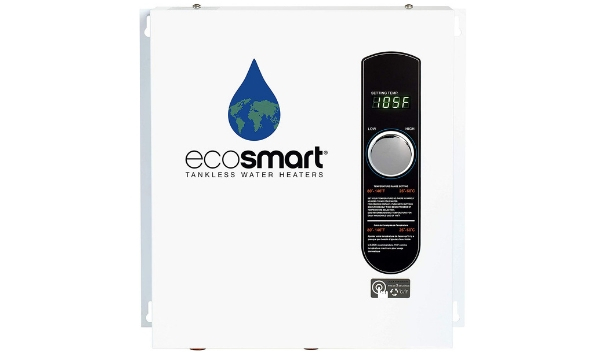
Pros:
- Limited lifetime warranty
- Self-modulating technology
- Digital temperature control
Cons:
- Takes a few seconds for hot water to flow
- Warranty is void if you set it up yourself
- Not ideal for high water pressure
4. Stiebel Eltron Tempra Plus
 Best Water Heater for Shower
Best Water Heater for Shower
Stiebel Eltron was the first company to ever offer tankless water heaters for the entire home. And they’re still one of the leading manufacturers in the industry. Their Tempra Plus series offers self-modulating technology AND advanced flow control which means your water heater remains energy efficient while ensuring your showers remain hot the entire time. The Tempra Plus has an EF rating of 0.99. It features solid copper heating chambers, a digital temperature display, and even a savings monitor that shows you how much you’re saving on costs. There are even preset temperature memory buttons. Plus, you get 7 Years leakage and 3 years parts complete warranty. However, you need to hire an electrician to make sure you have the properly sized wiring and breaker required by the manufacturer. It isn’t always hot water on-demand. And it requires a high flow rate in order to activate the hot water.
Pros:
- Self-modulating technology
- Advanced flow control
- 0.99 EF rating
Cons:
- Requires professional for installation
- Sight delay in delivering hot water at times
- Requires high flow rate to activate
5. SioGreen IR288
 Best Water Heater for Hard Water
Best Water Heater for Hard Water
One of the most innovatively designed water heaters in the market today is the Sio Green IR288. This electric tankless water heater uses a quartz infrared tube that is able to create heat without requiring direct contact with metal. This not only prevents corrosion, but it also prevents calcium deposits which minimize the growth of bacteria in the water. Moreover, you don’t need to routinely flush the unit or replace the heating elements at any point. Aside from all those benefits, the Sio Green IR288 also comes with automatic modulating technology, a water flow regulator that enables you to control temperature, and a digital temperature display. However, the temperature display is only in Celsius. The unit cannot be used for hot showers in areas with a groundwater temp of 47 degrees Fahrenheit.
Pros:
- Maintenance-free heating element
- Infrared technology
- Automatic modulating technology
Cons:
- Not ideal for shower use in areas with a cold inlet of 47 degrees Fahrenheit
- Temp display is only in Celsius
6. Bosch GL4S Ariston Electric Mini-Tank Water Heater
The Bosch Ariston GL4S is another point-of-use mini-tank water heater that enables you to get hot water on demand from your sink faucet. Like other similar models, you can use it as a buffer for your tankless water heater, a supplement to your large tank water heater, or as an independent water heater. Installation is easy because you don’t need to do any hard wiring at all. Just plug the unit into a standard outlet and voila! The glass-lined tank is solidly constructed and provides superior insulation. It comes with a 6-year limited warranty for the heat exchanger and a 1-year limited warranty for parts. However, setting the thermostat is not as easy as the dial is not labeled. You also need to replace the anode at least once a year if you want the unit to last long.
Pros:
- Hot water on demand
- Easy to install
- Affordable
Cons:
- No temperature display on the dial
- Requires replacing the anode frequently
7. Ariston Andris 2.5 Gallon 6-Year 120-Volt Corded Point Of Use Mini-Tank Electric Water Heater
If you are looking for a water heater to use in a mini-tank, you have come to the right place. This Ariston Andris water heater comes with a 2.5-gallon water tank to provide you with hot water in an instant. You may attach it to tap or showerhead for hot water right where you need it. The heating element has a 1440-watt capacity and is capable of giving you hot water at between 65°F and 161°F.
This electric water heater is extremely easy to install. You may mount it on a wall or place it on the floor, whichever you choose to do. It comes with wall brackets as well as rubber feet for installation on your favorite surface. Once it is secured into place, simply connect it to a ½-inch NPT water source, plug into a 120-volt outlet, and switch it on. It is a small-sized point-of-use water heater that measures 14.25 by 14.25 by 10.75 inches. Thus, you don’t need a lot of space to install it. Thanks to the TitanShield technology, the inner surface of the tank is fully protected from corrosion.
Pros:
- A point-of-use water heater
- Easy to install
- Requires little space to install
Cons:
- Has a small capacity
- Cannot supply the entire house with hot water
- The warranty is divided into different parts
8. Camplux 5L Portable
If you’ve ever gone on a road trip or camping, then you know the pain of cold showers. Well, there’s a water heater for that – the Camplux 5L Portable. This propane tankless water heater has 1.32 GPM with a water pressure range of 2.5 to 110 PSI. It uses 2 D cell batteries which makes it a great option for locations where electricity is not available. The unit features a handle which makes it easy to carry and set up outdoors. It even comes with a showerhead. Plus, the Camplux 5L Portable has flame failure protection, anti-freezing protection, overheat protection, and oxygen depletion safety shutoff protection. However, the hose and cord feel like cheap plastic. The handheld shower does not have an on/off switch. And the instructions in the manual are poorly written.
Pros:
- Instant warm water
- Portable water heater
- Easy to setup
Cons:
- Hose and cord are flimsy
- No on/off button for the handheld shower
- Poorly written instructions
9. Rinnai RUC98iN
The Rinnai Ultra series are tankless water heaters that run on natural gas or propane. It can heat up water up to 140 degrees Fahrenheit. It has an EF of 0.96 which makes this a very energy efficient unit. Plus, it meets the nitrous oxide emissions standards of both California and Texas. The heat exchanger comes with a 12-year warranty, the parts have a 5-year warranty, and you even get a 1-year labor warranty. However, while you do get endless hot water, it does take time to get that hot water flowing. The unit itself is quite expensive. And there have been some complaints about the company’s customer service.
Pros:
- 0.96 EF rating
- Meets Nitrous Oxide emission standards in CA and TX
- 12-year warranty on the exchanger
Cons:
- Expensive
- Poor customer service
- Slight delay in getting hot water
10. Rheem RTEX-13
Rheem is a reputable brand in the water heater industry. So, it’s no surprise that one of their products is on our list. The Rheem RTEX-13 is a tankless water heater that uses self-modulating technology. The front of the panel features a temperature dial that enables you to adjust the temperature at 1-degree increments. There’s also a digital display so you know what temperature it’s currently set at. The unit uses a rugged brass and copper immersion heat exchanger. This water heater only needs 0.3 GPM to activate the heating elements. In addition, it has a maximum flow of 4.8 GPM which is enough to cover hot water for two faucets and a shower. However, it is not ideal for large households and does not provide optimal performance in cold climates. This unit also requires a 60-amp breaker box because it does use up a lot of power.
Pros:
- Easy to install
- Easy-to-use temperature control
- Great for small households
Cons:
- Not ideal for cold climates
- Requires 60-amp breaker box
How to Choose the Best Water Heaters: The Ultimate Buying Guide
No one appreciates hot water more than a person who has run out of it. And no one considers the importance of the right water heater until the one they have is unable to provide them with enough hot water or, worse, breaks.
If you’re looking to add a water heater to your new home or want to replace an old one that is in its last leg of life, you’ll be happy to know that the models available nowadays are more efficient than what they used to be several years ago. Now, the right water heater for your home will depend on your hot water needs. To help you figure out what your needs are, we created this handy shopping guide.
Types of Water Heaters
Storage Tank Water Heater
This is the traditional water heater that a lot of us grew up with. As the name suggests, this type comes with an insulated tank that can hold anywhere from 20 to 80 gallons of water (depending on the size). The water inside the tank is heated using electricity or natural gas and then stored until needed. A pipe on top of the heater attaches the tank to the home’s plumbing system. Because of their size, this type of water heater requires storage space inside your home – basement, kitchen, garage, or a closet. This type of water heater is ideal for homes who require hot water for more than one user at a time such as taking a shower and doing laundry. Compared to tankless models, these have a shorter lifespan and can cause flooding in your home if the heater malfunctions. Also, once the tank is emptied, you have to wait a while for the tank to refill with hot water.
Electric water heaters cost less than gas water heaters and are generally easier to install. These also have a longer lifespan and are easier to maintain. However, gas water heaters are more reliable and have higher efficiency ratings (cost less to run). Plus, they remain working even during a power outage.
Over the past few years, manufacturers have started offering mini-tank water heaters to provide customers point-of-use access to hot water. For example, the InSinkErator HWT-F1000S features a small tank (2-3 gallons) that stores up hot water for use in the kitchen sink.
Tankless Water Heaters
Unlike storage tank water heaters, this type provides you with hot water on-demand which makes it more energy efficient since you don’t waste energy keeping a tank full of hot water. Water is heated by a heating element powered by gas or electricity that is connected to the water pipes of your home. Because these water heaters are smaller in size, they don’t take up as much space in your home like the EcoSmart ECO 27. You can even install them outdoors. Other benefits to this type of water heater are longer lifespan (more than 20 years) and usually have longer warranties.
However, installation isn’t easy as you may be required to upgrade your electrical system in order to be able to support the device. Or, you might need to have a dedicated gas line as well as proper ventilation. Also, tankless models often have a limited output which means they aren’t ideal for homes where you need to use hot water simultaneously.
Hybrid Water Heaters
This type of water heater uses a heat pump to capture heat from the air to warm the water. Compared to regular electric water heaters, this kind uses 60% less energy though they tend to cost more. Installation is similar to the electric models. However, heat pump water heaters do not work well during cold weather; you need to place the unit in an area that has a temperature range of 40 to 90 degrees Fahrenheit. In addition, these units tend to be taller than typical tank water heaters because of the heat pump located on top. Moreover, you will need to have around 1,000 cubic feet of uncooled air space to allow the pump to capture enough heat from the air as well as a drain where the condensate can be discharged. Take note that you can also buy a heat pump to be retrofitted to your current storage tank water heater.
Tankless Coil and Indirect Water Heaters
These types of water heaters make use of the current heating system of your home. With a tankless coil water heater, there is no separate storage tank because water is heated inside the boiler using a heat exchanger. This type of water heater performs well during the cold months because the heating system is regularly used. However, it is not as efficient during the warmer months and in warmer climates due to the fact that the boiler isn’t used as often.
With an indirect water heater, you will need a separate storage tank. Similar to the tankless coil type, water is heated by a heat exchanger inside the boiler. However, the water is then stored in the insulated storage tank. Because of this, the boiler does not need to be used as frequently which makes an indirect water heater more efficient in comparison. When used with a highly efficient boiler, an indirect water heater is possibly one of the least expensive ways to get hot water flowing in your home.
How much hot water do you need?
For storage tank water heaters, this refers to the tank capacity. And the size of your tank will depend on the number of people who will be using that hot water and how much of it is needed during peak hours. For example, a family of two will need a tank size of around 26 to 36 gallons in order to take showers, run the dishwasher, and do laundry. Aside from tank capacity, you should also check the model’s first-hour rating or FHR. This measurement tells you how much hot water the heater can produce during an hour of high usage. Calculate how much hot water your household needs during a busy hour and then choose a model that has an FHR that meets that number. For example, if your peak usage is 36 gallons, your water heater should have an FHR of around 40 gallons.
For tankless water heaters, capacity is measured by the gallons per minute rating or GPM. This number, which is also known as the flow rate, tells you how much hot water you can get over a set period of time. Naturally, the higher the number, the more hot water the unit can deliver. If you have a large household or plan to supply hot water to the bathroom, washing machine, and dishwasher simultaneously, you need to look for a model that has a high GPM. The Takagi Indoor Tankless Water Heater, for example, has a flow rate of 6.6 GPM which is ideal for small to medium-sized households.
How efficient is your water heater?
To determine how fuel efficient a water heater is, you will need to check its Energy Factor (EF) rating. This measurement is based on how efficiently the heat produced by the energy source is transferred to the water, standby losses (heat lost from stored water on a per hour basis compared to the heat content of the water), and cycling losses. Generally, the higher the EF rating, the more efficient a water heater is. Electric models usually have an EF of 0.7 to 0.95 while gas heaters usually have an EF of 0.5 to 0.6. Heat pump water heaters have an EF ranging from 1.5 to 2.0. The Stiebel Eltron Tempra Plus, for example, has an EF of 0.99. Also, you can check this out to know how you can soften the water with one of the best water softeners.
How long is the warranty?
Warranties for water heaters range from 3 to 12 years. Generally, the longer the warranty is, the more model will cost you. However, this also usually means that the water heater will have larger elements which mean faster water heating. In short, choose the water heater that has the longest warranty available.


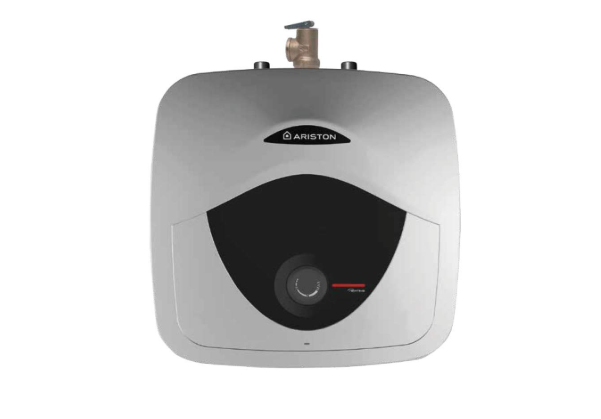
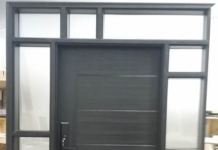
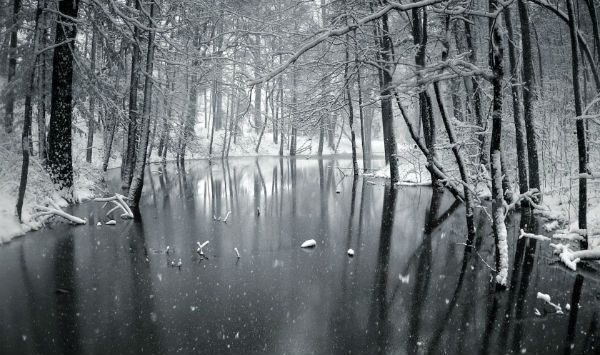

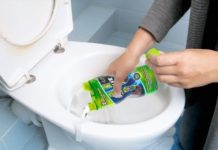

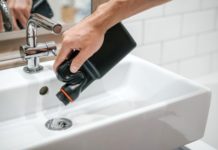





![Best Crochet Hooks for Beginners and Pros [2020 Update] best crochet books](https://www.awebtoknow.com/wp-content/uploads/2018/01/best-crochet-books-100x70.jpg)


